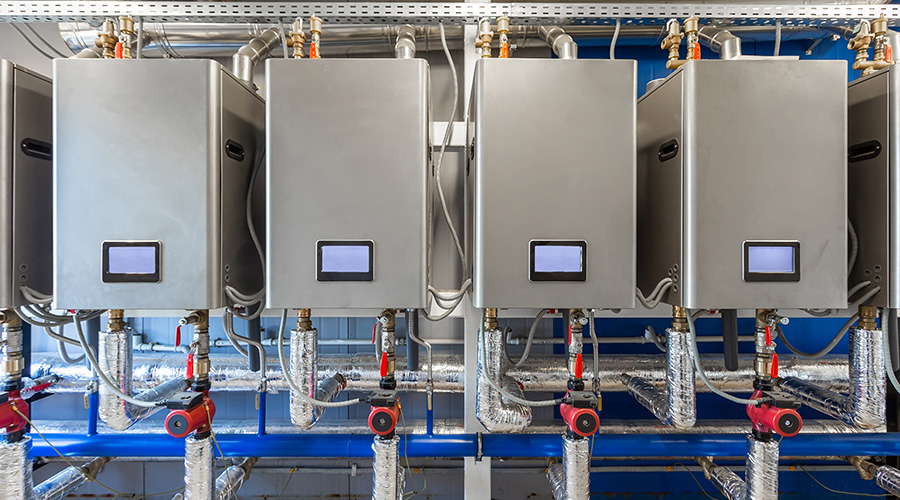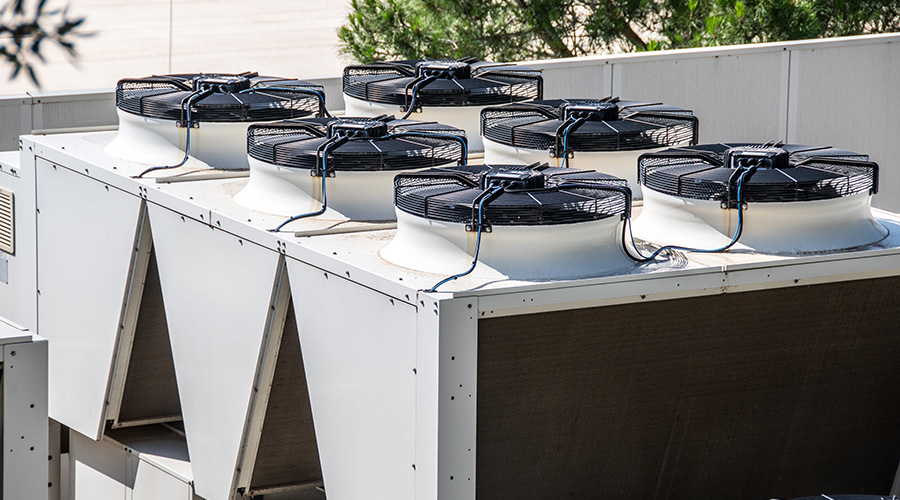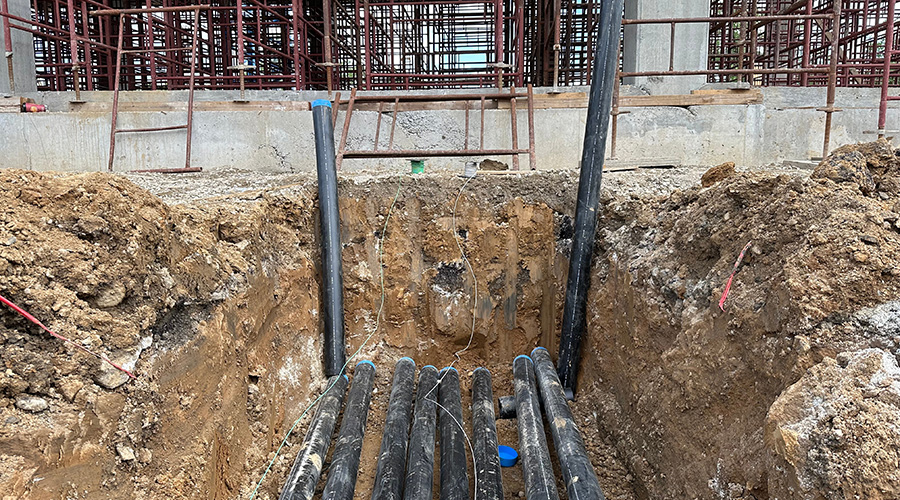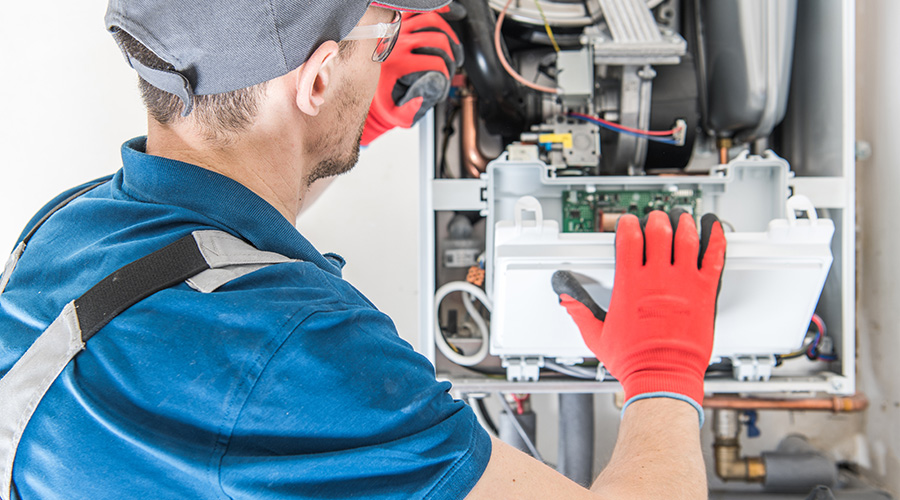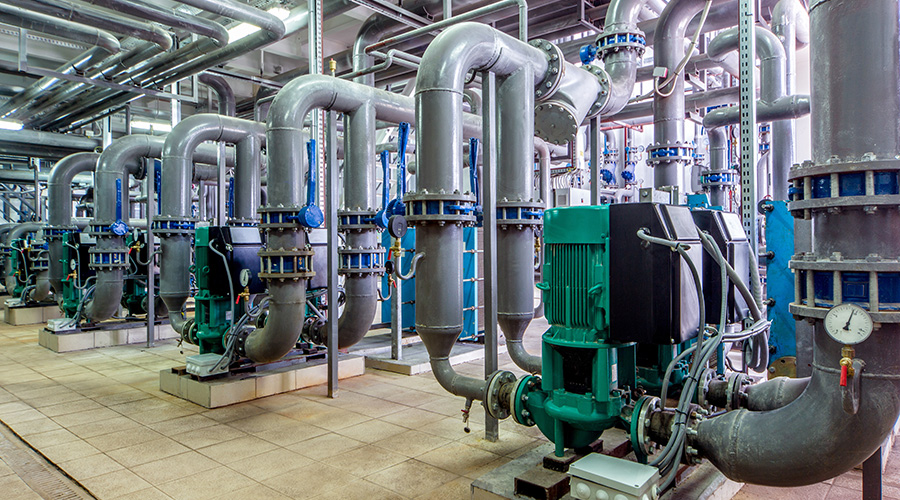How to Rent a Boiler
When an emergency strikes, make the rental process easier by following these steps.
By Dave Lubach, Executive Editor
As any facility manager working with boilers knows, it is one of the more expensive HVAC system projects at institutional and commercial facilities.
When you include all the components associated with boilers, the labor required to install and operate them and delivery costs, boiler projects can often escalate into millions of dollars. Those costs can soar even higher if an emergency requires replacing or temporarily replacing a boiler, resulting in the need to rent one.
At the Boiler 2024 trade show hosted by the American Boiler Manufacturers Association in Denver, Colorado, Michael Pfeiler of Wabash Power Equipment Co., presented an education session on the specifics of renting boilers.
Pfeiler’s reasons why a facility might need to rent a boiler include:
- Unplanned emergencies
- Planned power outages
- Additional steam capacity needed, such as a facility expansion
- Upgrading equipment and waiting for the permanent equipment, as new boilers can take more than a year for delivery
- Commissioning delays for new equipment
- Budget issues, such as when capital expenses aren’t readily available.
What do I need?
The manager or person in charge of specifying and/or a rental boiler should understand all the boiler components required for operation.
Components that need to be part of the rental include:
- Economizer
- NOx emission system
- Gas pressure regulator
- Extended stack
- EPA ports
- Deaerator
- Feedwater pumps
- Water softeners
- Blowdown system
- Remote operating station
- ASME steam valves
Knowing what type of boiler fits a facility’s needs also saves rental companies time evaluating and questioning managers about needs, whether it’s a firetube, watertube, electric, low NoX, etc.
Installation/operation tips
Like new installations, boiler rentals are not cheap. Renting boilers and the additional required components could cost anywhere from a few hundred dollars a month to tens of thousands a month, according to Rassmussen Mechanical Services, a supplier of rental boilers.
Pfeiler says the three most important aspects of boiler renting for clients:
- Operate it
- Maintain it
- Insure it
Adhering to these concepts can help managers keep rental costs at a minimum. Some factors managers need to consider when renting include:
- Where is the delivery coming from? “Boilers are not meant to go on the road. They’re built to last 30 to 40 years,” Pfeiler says. “Rental companies work hard to make them robust so they can travel many ways, such as loading onto a ship or train, float on a barge, or loaded onto a very large trailer, which mostly requires wide loads and (highway escorts) only driving in light hours.”
- Treat the boiler as your own. “Do they come back damaged? Yes, and that’s a problem,” Pfeiler says. “We send out boilers that are clean. How many times do you get a rental car and beat it up? Treat it like you own it. A lot of the expense is when a boiler comes back, and the (lessee) didn’t take care of it. It can take up to two months to repair and the lessee will pay for the repairs and the downtime.”
- Where is it located? The surface on which the boiler will be located matters, whether it’s concrete, asphalt, loose gravel, dirt, etc. “When filling with water, it needs to stay in place and be level and balanced,” Pfeiler says. “Engineering is important. If you have a place that’s compacted gravel, and the boiler weighs 100,000 pounds and it sinks, it won’t work. Look at the type of surface.”
- Know local codes. Since every state has its own codes and insurance standards, be sure to learn what’s required before installation and during the specification process to share the information with the rental company and the installer.
- Find an installation team. According to Pfeiler, “most rental companies do not have their own installation team. You need a good contractor that knows how to install boilers, and can put things together, like fire a control panel up and set up field engineering. It's important to have the equipment and proper drawings (of the facilities) to allow good engineers and installation people to work with them.”
Boiler technology today allows rental companies to install remote operator workstations on their systems, potentially saving the customer thousands of dollars in having to adapt their operations to the temporary boiler solution.
As Pfeiler said in his presentation, “a boiler is a big pile of money.” If facility managers have an emergency plan in place for if/when the time arrives to rent, the process can go smoothly and reduce costs in the process.
“All of the questions that the rental boiler company are going to ask will pull all this information out,” Pfeiler says. “It’s all these little pieces and parts that need to come together to make a successful rental project.”
Dave Lubach is the executive editor of the facilities market. He has more than nine years of experience writing about facility management and maintenance issues.
Related Topics:








